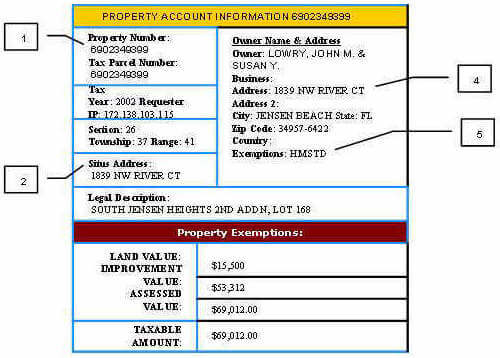All Categories
Featured
Table of Contents
It is essential to note that not every state provides investors the opportunity to take part in a tax obligation lien sale. In some states, a residential property with delinquent tax obligations will certainly go right to the tax sale procedure. In the states that do use investor the chance to buy tax obligation liens, around 33 percent of the $14 billion in overdue taxes were liquidated (in 2017, as an example).
If you are interested in the tax lien foreclosure procedure, you ought to contact an attorney so you recognize and consider the risks of this type of financial investment.
What Is Tax Lien Real Estate Investing
Tax obligation lien sales are one manner in which cities and areas try to redeem several of the general public bucks they have actually spent keeping these properties abandoned by exclusive proprietors. As we'll describe in this write-up,. When building tax obligations are thought about delinquent, city governments commonly concentrate on providing notice of delinquency and trying to accumulate the overdue quantities from the proprietor.
This procedure usually takes years. If a proprietor has left and hesitates to pay tax obligations or maintain the residential or commercial property, the city should invest tax obligation bucks to preserve the residential property. These costsboarding up the building, trimming thick yard and weeds, reacting to fire and authorities calls on the property, and moreadd up.
Proprietors that have actually dropped on difficult times definitely require every initiative to maintain them out of delinquency and in their homes. investing tax liens. But typically, if the property is uninhabited and scrubby, we need to assume the owner has actually chosen to abandon their passion in the residential property which they are "unwilling" to pay (though circumstances previously while doing so may have forced their hand).

Take, as an example, a single-family home where the owner has time out of mind strolled away. For several years the city government has actually needed to step in and eliminate garbage dumped in the lawn, board up the doors and home windows, and react to phone calls regarding immoral activity on the property. All these solutions cost the regional government taxpayer dollars.
In lots of states, those costs can be collected likewise as the overdue taxes, yet not in all. (Something that Community Progression highly promotes for.) At some point, the total financial obligation comes to be above what the home could cost. In a tax obligation lien sale (or tax obligation certificate sale) the city government normally holds a public auction where the winning prospective buyer agrees to pay the most cash for the right to implement the tax lien, beginning with a minimum proposal of a minimum of the tax obligations had, plus relevant interest, charges, and costs.
When a federal government offers the tax obligation lien they are generally selling to an exclusive buyer the regional federal government's authority to collect the financial debt in exchange for upfront payment of the tax obligations owed. The purchaser's purchase usually consists of the capacity to gain future passion, as well as redeem relevant costs and prices sustained by the customer, if the homeowner pays the tax obligation financial obligation.
Robert Kiyosaki Tax Lien Investing
This is, basically, privatization of a core federal government feature: tax collection. Tax lien sales are particularly negative when it concerns uninhabited, deserted, and worn-out properties due to the fact that they lengthen the period before a residential or commercial property can be moved into the hands of a new, much more responsible owner. Exclusive tax lien buyers hold the financial obligation, but they do not possess the titlethe legal right to possession of the propertyand in a lot of cases, they have no rate of interest in obtaining it.

Thinking about budget plan cuts, city governments in many states have lowered in-house home tax collection and enforcement initiatives and sought to tax lien sales as a fast mixture of income. Numerous counties pick or are mandated by the state to sell tax obligation liens since it contracts out collection and usually generates very needed money earlier in the collection process.
By transferring the city government's interest in and enforcement of the tax lien to a private purchaser, city governments shed a lot of their flexibility: adaptability to get vacant residential properties that the personal market does not want, or to assist the owner prevent shedding their property. With uninhabited residential properties, there is a much greater chance that the private purchaser isn't curious about the home itself.
Tax obligation lien sales can trigger damage in traditionally disinvested locations (tax lien investment). In a depressed real estate market, less proprietors have the ability to retrieve the amount of the financial obligation marketed to a tax lien buyer - tax lien investing scams. These areas are ripe for a various kind of tax lien investorspeculative owners looking for to obtain properties on the inexpensive by confiscating on the real estate tax lien, bleeding what little bit equity is left by renting out a substandard property to prone renters, and after that abandoning the building when they've gained back their investment

Not all state legislations offer local governments the power to interfere in this cycle. Regardless, the residential property stays uninhabited and in limbo, all the while imposing considerable expenses on its neighbors and taxpayers. It's reasonable that lots of city governments turn to tax lien sales due to the fact that they help fund essential civil services.
Online Tax Lien Investing
If the city government rather offers the property (also known as the "tax act"), rather than the tax obligation financial obligation, after that they are in control of what happens to the residential property and the enforcement procedure if the proprietor remains to not pay the real estate tax owed. The government will certainly provide the proprietor an affordable time to pay back the tax obligation financial obligation, after which the government will certainly foreclose its interest in the tax obligation lien and the proprietor's right of redemption.
From their inception, these auctions were venues for investors to make money through exploitation. tax lien investing arizona. In very early 20th-century cities, well-known "tax sharks" like Chicago's Jacob Glos and New York's Charles Wiltsie accumulated lot of money by acquiring up ratings of tax liens on property homes, charging their owners excessively high quantities to get rid of the lien, or waiting up until the deadline for settlement passed and asserting the act
Phone call to eliminate tax lien sales and overhaul tax obligation misbehavior legislations have periodically emerged. Typically, they have actually been available in action to situations of bad, typically elderly homeowners who lost their homes to underhanded tax obligation customers over little tax obligation debts. how to tax lien investing. However with a few exemptions, state legislatures have stood up to structural reforms.
Those who have repaid their mortgages (primarily senior citizens or persons who had actually inherited a family members home) must additionally find the cash to pay building tax obligations. This describes why 70 percent of the homes marketed at tax obligation lien sales are owned outright. It is well hobby for states to take on an even more humaneand more effectivesystem for property tax obligation enforcement.
Latest Posts
Tax Repossessed Property
Property Tax Foreclosures
Properties With Tax Liens Near Me